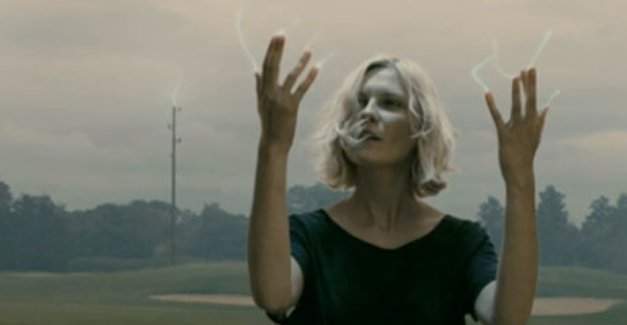Melancholia
A film of originality and raw beauty, Lars Von Trier has created a sumptuous masterpiece.
Overview
Though there are few immune to the charms of one Torrance Shipman, the bouncy, navel-bearing cheerleader in Bring It On, or Lux Lisbon, the ethereal eldest sister in Sofia Coppola’s The Virgin Suicides, Kirsten Dunst has never really screamed Oscar-contender. But as a severely depressed, newly wed bride in the forthcoming Melancholia, our beloved indie It girl is seeing the type of hype ordinarily saved for the Blanchetts and Clooneys of the acting world. And let us tell you, the hype is bang-on. Thanks to director Lars Von Trier, the brilliant mind behind Dogville and Antichrist, Dunst has been offered the mother-effing crown jewels in dream roles.
As the deeply complex Justine, who we first meet on her wedding day to Alexander Skarsgard’s stupidly oblivious yet entirely devoted Michael, Dunst shines in her portrayal of a woman crippled by her illness. Although the wedding is as lavish as they come, organised by her wealthy sister Claire (played by the also-impressive Charlotte Gainsbourg) and set in a Swedish mansion, Justine is so depressed that she escapes from the party repetitively, forcing her family to hunt her down for most of the night. To add insult, their hippy mum, played by Charlotte Rampling, is bitterly condemning Justine and Michael’s marriage to any guest who listens, all the while a rogue planet named Melancholia is set to collide with Earth, smashing it to smithereens in a matter of days. So things are kind of bat-shit tense from the get-go.
It’s a testament to Dunst’s acting ability, which has rarely been pushed to such levels in the past, that we feel any compassion for our protagonist. She taunts Claire with her darkness, refusing to reassure her sister that Earth and hence Claire’s happy existence will survive Melancholia’s impact. She shows no appreciation for Claire’s mothering, which stretches so far as to drag Justine into the shower of a morning. Dunst is obviously spectacularly broken yet her heart-breaking vulnerability and helplessness is as clear as day. More fascinatingly, as a depressive, she is remarkably at peace during Melancholia’s suspenseful home stretch. It’s an inspired, thoroughly educated performance.
Which of course comes down to Von Trier himself. A man with a vision like few others, Dunst is just one of the many well-greased machines he’s employed to help bring this sumptuous masterpiece together. Each frame as beautiful as the next and each looking as though they belong signed and hung on a wall, Melancholia is a very special piece of cinema. And don’t be fooled into thinking it will only impress art house types. Its originality, not to mention raw beauty won’t be mirrored with ease.





